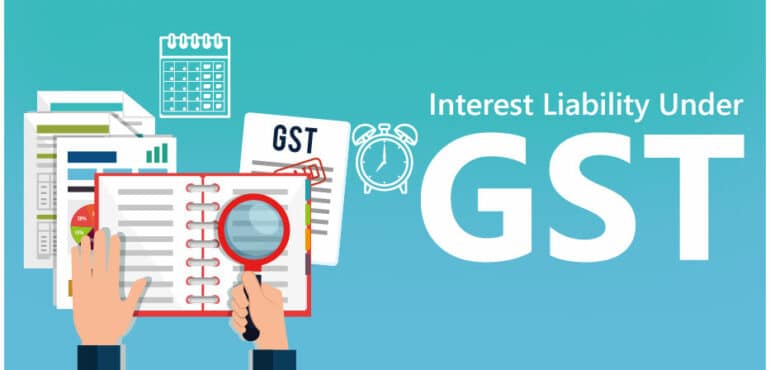Interest Liability Under GST
This is a topic that is being heatedly debated in recent past ever since the CBIC started recovery of interest liability from taxpayers on delayed payment of tax liability. Section 50(1) of the CGST Act states about interest on delayed payment of tax liability or wrongful availment of Input tax credit (ITC).
Let us understand the specifics of Interest liability in detail.
What is tax liability?
A tax liability is the total amount you owe in taxes to the tax authorities.
What is Net Tax Liability?
Net tax liability is the amount payable in cash after utilisation of Input tax credit(ITC).
What is gross tax liability?
Gross tax liability is the total output tax and tax payable under reverse charge mechanism (RCM).
What is delayed payment / remittance?
Any tax liability that you fail to pay within time falls under delayed payment of tax liability. In short, it the payment of tax after the due date has passed.
The debate: Interest on Gross Tax Liability or Net Tax Liability?
Suppose you have 1CR INR gross tax liability. After balancing with your ITC, the amount boils down to 20Lakh rupees which you pay in the next financial year instead of your applicable due date, thus marking it as delayed remittance. Because you delayed, you will have to pay 18% interest on your tax liability. But the problem arises: should you pay the interest on just 20 Lakhs, which is your Net Tax Liability, or on 1CR, your Gross Tax Liability?
Out of the 1CR, 80lakh has already been adjusted, meaning it is money you have already paid to the tax authorities / the government. So by common sense, it should be assumed you will have to pay the interest for delaying tax payment only on the tax liability as of yet unpaid, i.e. 20Lakh.
However, what seems obvious from the very definitions laid down in the various GST laws, is not actually so. GST law soon became twisted and over-complicated, creating confusion on which amount you should be charged interest for.
How did this debate unfold?
The spirited debates began when the GST council convened for its 31st meeting. In the meeting, an ammendment was presented that interest be charged only on Net Tax, or in other words, tax paid in cash. There was disagreement on this, which soon turned out to be divisive; one school of thought was for this amendment, while another maintained interest be charged on Gross Tax Liability.
The matter was taken to the High Court in Telangana, in a case of Megha Engineering and Infrastructure Limited vs. C.C.T, 2019-TIOL-893-HC-TELANGANA-GST. This case disputed the payment of interest on Net Tax, and the idea of paying the interest on Gross Tax was represented. The verdict on this is as of now still pending.
The debate continued.
Giving due consideration to the GST council recommendation at its 31st meeting, the Central Government vide Finance Act, 2019 amended GST law and declared that interest shall be paid only on the tax paid in cash.
However, the amendment was prospective, meaning that it would be made enforceable in the future only. As such, for the past taxations, the Revenue department got started on recovery proceedings. Through this process, they began deducting payable amounts directly from the taxpayers’ bank account. Later, the CBIC publicly clarified that the amendment will be made on prospective basis and till it’s made effective, the 18% interest has to be paid on Gross Tax.
There were protests and complaints against these actions. Some of them were given due considerations and were issued reimbursements, while others got a stay order and did not get any rollbacks on their deductions.
And finally…
Recently, The Government has announced in the budget that Section 50(1) will be amended retrospectively from 1st July 2017 and interest will be calculated of Net Tax liability.
